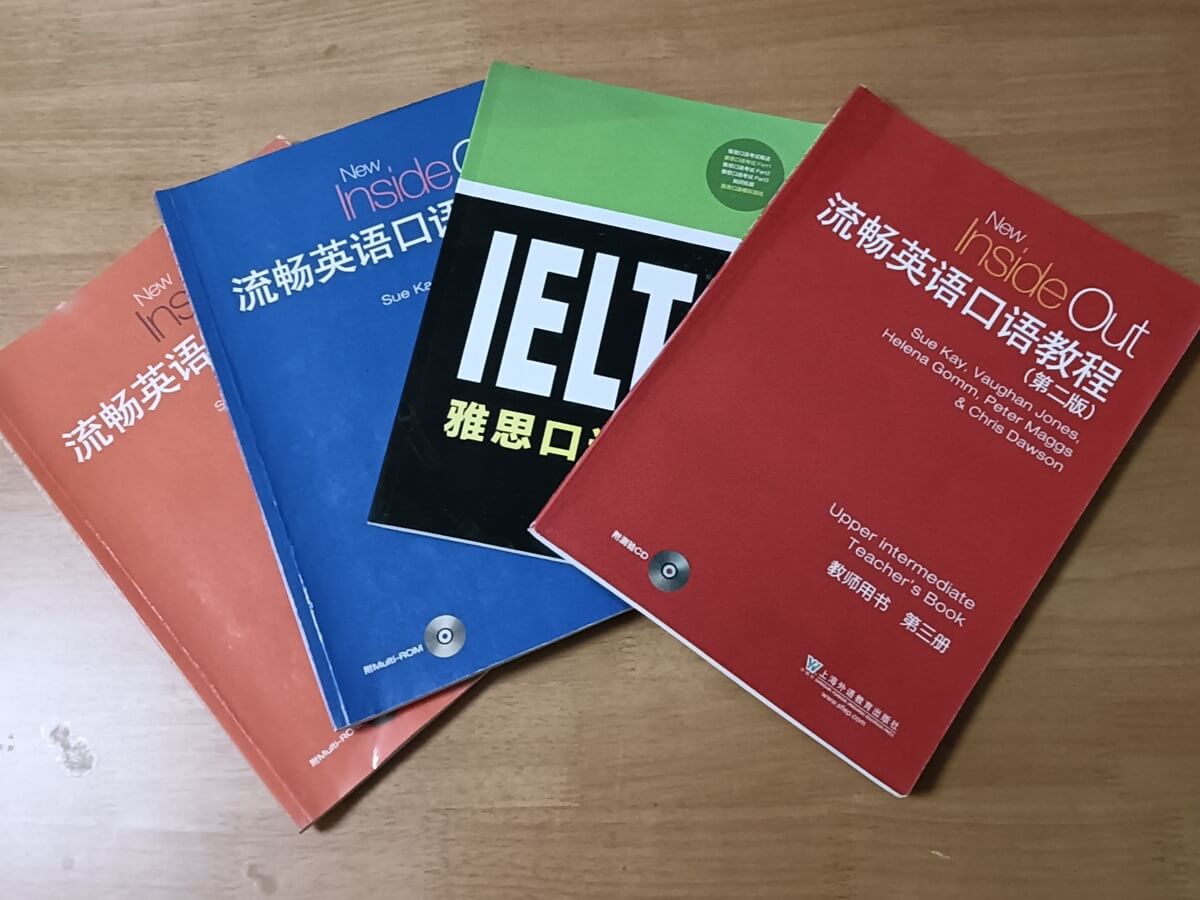Will Chinese people ever really be able to speak English?
Will a foreigner in China ever be able to go to a restaurant and order their food in English? Will we ever be able to walk into a bar and chat with the locals in English?
Since English is a widely spoken global language, aren’t these questions worth asking?
Before I go any further, I’d like to clarify that by ‘Chinese people’ I’m referring specifically to those people of Chinese ethnicity in China, not those living in countries like the US, UK and Australia.
If you’re in one of China’s major cities, you might get lucky sometimes, but sadly, in the vast majority of cities in China, the answer is a resounding “No!”.
If you ever visit China, you’ll find that in most places, the average Chinese person whom you might meet in the street won’t be able to speak English at all.
When I arrived in China for the first time, I had to insist that my employer send someone to pick me up from the airport.
Since I couldn’t speak Mandarin at the time, I faced a significant language barrier and there was no way I’d have been able to make it to my workplace on my own.
Here are 12 reasons why Chinese people will never be able to speak English.
1. Chinese schools only teach reading and writing
Although English education in China starts in primary school, Chinese schools generally only teach reading and writing, not listening or speaking.
In China, it is the job of parents to teach their children how to listen and speak.
Chinese people won’t ever be able to speak English simply because oral language skills aren’t taught until they get to university.
2. The purpose of school in China is just for passing exams

There’s a huge focus on exams in China. Image supplied by Kim Ooi.
As a foreign teacher in China, I was shocked when my students told me that they weren’t ever told the reason or rationale for learning something, other than to pass exams.
Unlike people in the United States and other western countries, Chinese people don’t learn something because it could get them a good job, expand their horizons, enable them to travel or do business with foreign companies.
Chinese teachers hand out the answers to exam questions prior to the big day, which students just memorize and regurgitate. Anything that’s been taught in class is irrelevant.
At university, which is often the first and only time that Chinese people get to learn oral English, Chinese students might do another teacher’s homework, play with their phones or even sleep during their oral English classes.
Chinese students believe that it’ll take them a long time to be fluent in English and they’re not given much time in their timetables for English lessons. So, they just give up!
3. Local teachers teach English badly
Chinese people are often unable to speak English as adults due to bad teachers and ineffective pedagogy.
I once had the opportunity to observe a Chinese teacher teaching English to her students and she made several mistakes.
She struggled to spell a number of words correctly, and told her students that a “cocktail” was the name of the AIDS antiviral therapy.
And this was in a fairly urban city. The situation in rural schools would be significantly worse.
The vast majority of English teachers in China are non-native speakers. They teach English badly because it’s not their mother tongue and because they had themselves been taught badly.
It’s very difficult to correct our students’ grammar once what they’ve been taught becomes fossilized.
Chinese people will also never be able to speak English because many of them never had the chance to learn from a native English speaker.
4. Terrible textbooks

The textbooks used in Chinese schools are notoriously bad. Image supplied by Kim Ooi.
Sometimes, the local teachers seek my advice when they come across something in a textbook which they don’t understand.
An example of this is as follows:
“______ he wanted to go out with his friends at the weekend, he’d to stay behind to finish his assignment.”
The fill-in-the-blank choices were:
- Much though
- Much as
- As much
- Though much
There are two problems with this question. First, “he’d to stay” is grammatically incorrect.
And secondly, none of the answers are correct. The correct answer is “As much as”.
Textbooks in China have a terrible reputation. It has even been said that they were originally written in Chinese and then run through Google Translate!
As a result, they’re likely to be riddled with errors.
5. Very few opportunities to practice
China isn’t a native English-speaking nation.
In China, there are approximately 1.4 billion Chinese people but only around 845,000 expats. Chinese people don’t often get the opportunity to practice their oral English.
The vast majority of them don’t need to speak English in their daily lives.
This is exacerbated by the fact that most people normally tend to hang out with the people whom they are familiar with.
Chinese people like to hang out with other Chinese people and the foreigners like to associate with other people from their own countries.
I was once the member of an English Corner (an English conversation group) where the default language was Mandarin Chinese! I guess the members felt more comfortable speaking in their native tongue.
6. English is no longer as important

Sadly, English is becoming less important in some Chinese schools. Image supplied by Kim Ooi.
China is trying to de-emphasize the importance of learning English.
There have been recent reports like this one and this one on The New York Times (paywall) that English study is being cut back in some Chinese cities.
With fewer and fewer Chinese people learning English, eventually the day might come when nobody in China will be able to speak the international language.
7. University students can be lazy
Due to the huge population, competition for a place at university is fierce.
In high school classrooms across the country, slogans like “Open your eyes, begin your fights” are plastered to the walls.
From the moment a high school student wakes up until they go to bed, they can do nothing except study, pausing only to eat and to use the toilet.
Chinese high school teachers promise their students that if they pass the Gaokao exam, they’ll go to a place where they’ll no longer have to do any work and where graduation is guaranteed.
As a result, many Chinese students play with their phones at university, rarely do their homework and might even sleep in class.
At some Chinese universities, especially the private ones, many students don’t come to class at all.
Some students turn up just to take the final exam at the end of the semester while others don’t bother to do even that.
8. The ‘no failures’ policy

You’re forced to give students good scores regardless. Image supplied by Kim Ooi.
In China, there is even legislation that stipulates that 95% of university students must graduate. As a result, many Chinese college students tend to be a little bit lazy.
College and university teachers in China often let their students pass without carrying out proper assessments.
As a foreign university teacher in China, one of the most difficult aspects of my job is doling out high scores to students who couldn’t even say a word of English in their exams.
9. Huge class sizes
It’s not unusual for Chinese schools to have over 30 students in a class. At one of the universities that I once taught at, two classes occupied one time slot.
That meant that there could be up to 70 or more students in my oral English class.
This makes it difficult to give any student individual attention, severely restricts the teaching methods or class activities that can be used and means that each student gets much fewer opportunities to speak.
Even when working collaboratively on a group assignment or presentation, the Chinese language becomes the default language of communication between students.
It’s also very difficult to carry out proper assessments because teachers only have two class periods to conduct exams.
10. Foreign teachers are hired to make schools look good
It took me a long time to realize this but it eventually dawned on me that my role as a foreign teacher in China wasn’t to teach but to make my school look good.
This is because native English speakers are seen as some sort of status symbol in China.
When a native of North America or the UK gives a Chinese student a high score in their oral English exams, it makes both the school and the student look good.
This enables the school to attract more students and make more money!
11. The students have a packed schedule

All Chinese university students go through weeks of military training. Image supplied by Kim Ooi.
One of my former students once posted his class timetable in his WeChat Moments. I was quite shocked to see that he had classes from 8 am until 8.30 pm, seven days a week.
As a result, many of them are forced to do their homework during class time instead of paying attention to what the teacher is saying.
Since they have such a huge number of classes, they can’t pay as much attention to their oral English classes as they might otherwise have wanted to.
12. Some students have never learnt English before
Most Chinese schools normally have English in their curriculums but not all of them do. My current students, for example, learnt Japanese instead of English at school.
Imagine being asked to deliver an IELTS Speaking course to a bunch of Chinese students who have never in their lives learnt any English!
They’ll find the course too difficult, they’ll just switch off and they actually won’t learn anything.
Implications for foreigners in China
When reading this blog, you might find yourself thinking, “So what? What does any of this have to do with me?”
The hard truth is that if Chinese people can’t speak English, this’ll have implications for the rest of the world.
It’ll become more difficult to trade with China, which as Asia’s factory, wields significant economic power in the region.
Not only will the teachers of English in China fear for their jobs but they’ll also become demoralized when they realize that all their hard work counts for nothing.
And, it’ll be even harder for foreign tourists who come to visit.
In a nutshell, the future is looking bleak for all foreigners who have a stake in China.
If you disagree, let me know in the comments below.
I hope you liked my article on why Chinese people will never be able to speak English. You might also like the one I wrote about whether Chinese bosses suck (you may already know the answer).
More of my popular articles
- Unique Chinese cultural norms
- Everything I know about Chinese girls
- The truth about schools in China
Main image credit: Supplied by Kim Ooi.




















